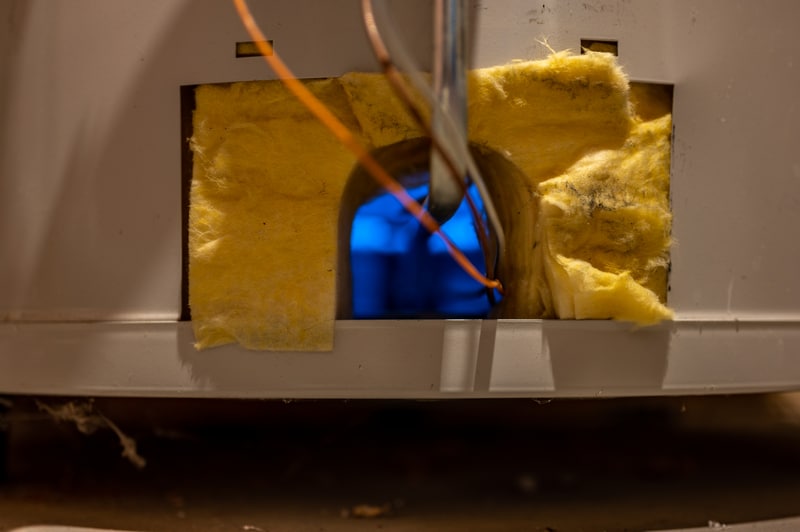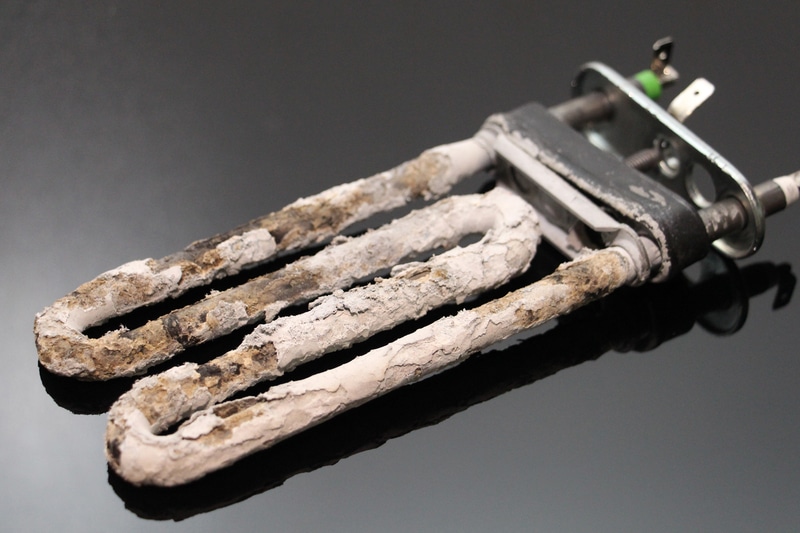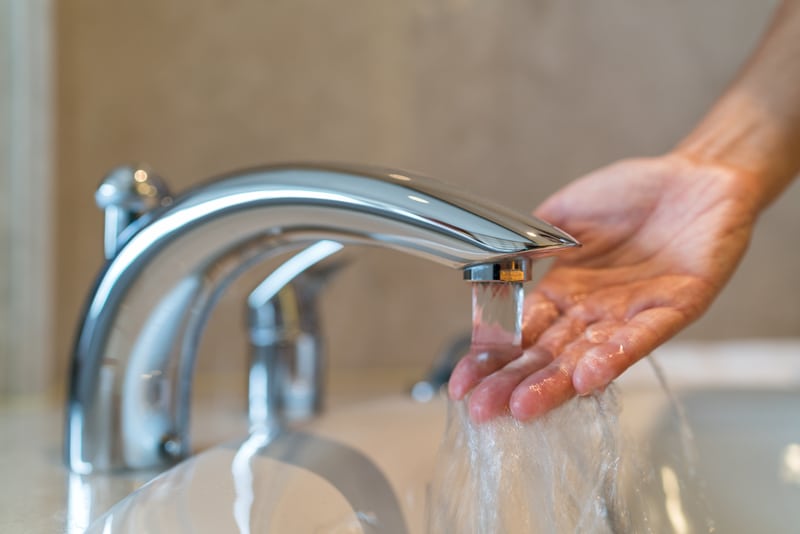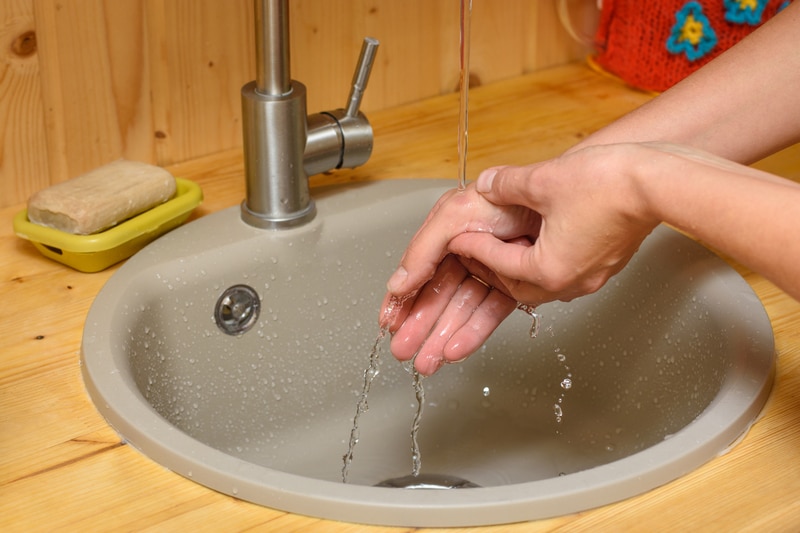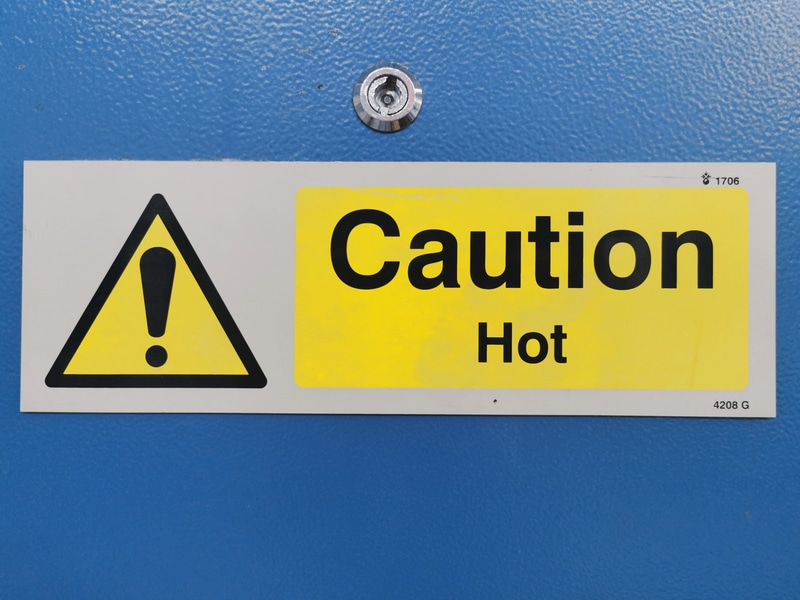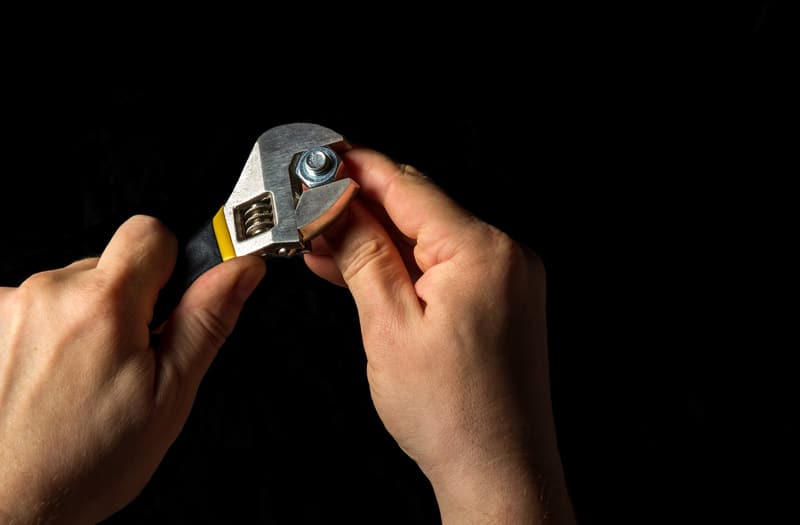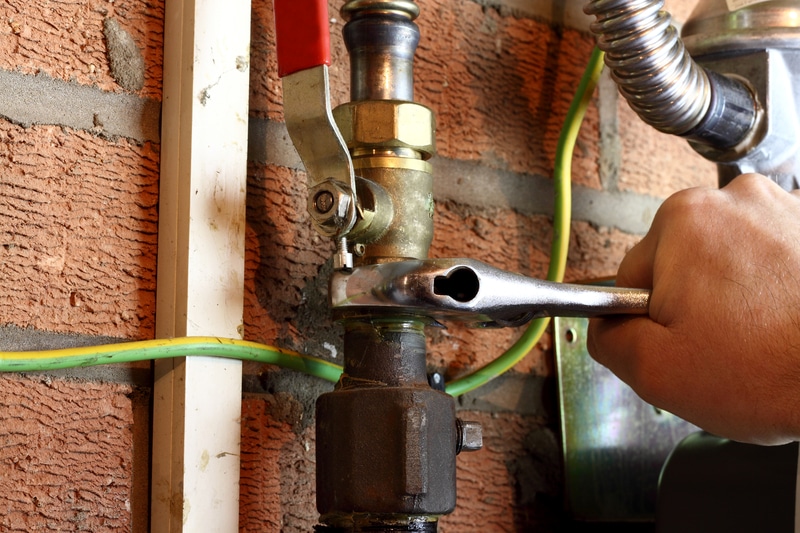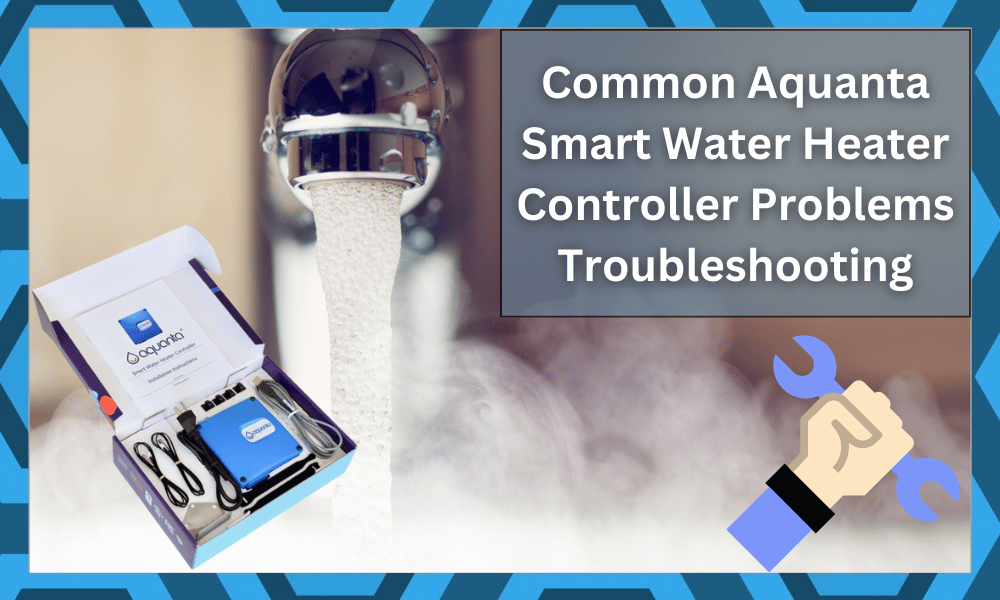
If you’ve recently installed an Aquanta Smart Water Heater Controller, you may have noticed that it’s not always easy to get it running smoothly.
This is especially true if you’re unfamiliar with the device and how it works. Fortunately, many of the most common problems that arise with the Aquanta Smart Water Heater Controller can be easily solved.
In this article, we’ll discuss 7 of the most common problems and provide troubleshooting tips so you can keep your Aquanta Smart Water Heater Controller running smoothly.
Common Aquanta Smart Water Heater Controller Problems Troubleshooting
- Not Receiving Hot Water
If you’re not getting any hot water from your Aquanta Smart Water Heater Controller, it could be because the pilot light is out.
Check the front of the controller for a small red light that should be lit when the pilot light is on. If it’s off, it means the pilot light has gone out and needs to be relit. To do this, you’ll need to follow the manufacturer’s instructions to relight the pilot light safely.
Another possible cause of not receiving hot water is a clogged burner tube or insufficient gas pressure. The burner tube runs from the gas valve to the burner and if it becomes clogged, it can prevent enough gas from reaching the burner and cause the water to remain cold. To troubleshoot this issue, you’ll need to inspect the burner tube and clear any obstructions.
If you’re still having trouble getting hot water, it could be due to low gas pressure. This can be caused by a malfunctioning gas regulator or a damaged gas line. You should have an experienced professional inspect and repair your system if you suspect either of these issues.
- Hot Water Not Lasting Long Enough
If you find that your hot water is not lasting as long as it used to, there are several possible causes. Firstly, check the temperature setting of your Aquanta Smart Water Heater Controller.
If it is set too high, it can lead to shorter hot water runs. Adjusting the temperature setting can resolve this problem.
Another cause could be a build-up of sediment in the tank. This can reduce the efficiency of the heating elements, leading to shorter hot water runs.
You may need to flush the tank and replace any damaged or corroded parts. You can find detailed instructions on how to do this in your user manual.
Finally, check the thermostat. If the thermostat is faulty, it can cause hot water runs to be shorter than normal. Replace the thermostat if necessary.
In conclusion, if your hot water is not lasting as long as it used to, check the temperature setting, look for sediment build-up, and inspect the thermostat for faults. If you are unable to solve the problem yourself, contact a qualified technician for help.
- Not Enough Hot Water
If you’re experiencing low hot water pressure or not enough hot water, this could be due to a few different things.
The first thing to check is the thermostat settings of your Aquanta Smart Water Heater Controller. You may need to adjust the temperature setting for more hot water.
If that doesn’t do the trick, then you may need to flush out your hot water tank to remove any built-up sediment that might be impeding the flow of hot water. This should be done every 6 months.
You may also have a problem with the size of your water heater tank if you’re using an older one. If your home has several people and lots of showers, you may need to upgrade to a larger tank.
Finally, you may have a blockage in the pipes leading to the tank. This could be due to corrosion or other debris that has been collected in the line. If this is the case, you will need to have a professional plumber take a look at it and clear the line.
- Hot Water Is Too Hot
Having water that is too hot coming out of your Aquanta Smart Water Heater Controller can be a serious safety hazard.
If your water is too hot, it is important to address the problem right away to prevent scalding and other potential hazards.
The first step to solving this problem is to check the temperature settings on your Aquanta Smart Water Heater Controller. If the setting is too high, adjust the temperature dial to a lower temperature.
Make sure to give it time to cool before testing the water again. If you have checked the temperature setting and it is still not cool enough, you may need to look for other sources of the problem.
Check for issues such as broken thermostats or faulty wiring in the unit. If these are not the cause, you may need to call a professional for help with more complex issues.
Aquanta Smart Water Heater Controller includes a range of features designed to help you maintain safe temperatures and minimize the risk of scalding.
Features such as the anti-scald protection mode will limit the maximum temperature of the water and ensure that it does not exceed a safe level.
If you are having trouble with hot water, make sure that this feature is enabled. Hot water that is too hot can be a serious hazard, so it is important to resolve this issue as soon as possible.
By double-checking the temperature setting, troubleshooting other potential causes, and taking advantage of features like anti-scald protection, you can help ensure that your Aquanta Smart Water Heater Controller runs safely and efficiently.
- Hot Water Heater Is Leaking
Leaks are one of the most common issues with water heaters. Fortunately, most leaks can be fixed relatively easily.
The first step is to locate where the leak is coming from. Check around the base of the tank and look for any water puddles.
If you find a puddle, the leak is likely due to a failed pressure relief valve or a loose connection. If not, the issue may be related to corrosion inside the tank.
If you have determined that the leak is coming from the pressure relief valve, this can usually be fixed by replacing it.
Make sure to turn off the power and water supply before removing them. If you have found a loose connection, tighten it using a wrench and make sure that it is secure.
If the leak is due to corrosion inside the tank, you may need to replace the water heater.
If you have determined that this is the case, contact a professional plumber to help with the installation and replacement of your water heater.
- Pilot Light Is Out
A pilot light is a small flame that helps ignite the burner of your water heater. When this flame goes out, it can lead to serious problems with your water heater.
If you notice that your pilot light has gone out, you should take action quickly to prevent further damage. The first step is to make sure that the pilot light is out. To do this, turn off the gas and wait 5 minutes.
Then, relight the pilot light following the instructions in the owner’s manual. If the pilot light will not stay lit, you should contact a professional to help troubleshoot the problem.
If your pilot light is staying lit but going out regularly, there could be an issue with the thermocouple or with airflow.
The thermocouple is a device that monitors the temperature of the pilot light and shuts off the gas supply if it gets too low. If it’s not working properly, it can cause the pilot light to go out.
Make sure it is clean and free of dirt or corrosion. If the thermocouple appears to be working properly, then check for any blockages near the pilot light that could restrict airflow.
This includes dust, cobwebs, and any other debris. Cleaning these blockages could help solve the issue.
- Gas Smell
If you smell gas coming from your Aquanta Smart Water Heater Controller, this is a sign that something is seriously wrong.
The most common cause of this issue is a loose connection in the unit, which could be due to a corroded fitting or an incorrect installation.
It’s important to immediately shut off the gas supply to the water heater and then call a professional to inspect the unit and make any necessary repairs.
If the smell persists after you’ve turned off the gas, it may mean that you leak somewhere in your home’s plumbing system. You should contact your local gas company for help with this issue.
You should also check to make sure the Aquanta Smart Water Heater Controller’s venting system is properly connected and free of any blockages.
A clogged vent can force dangerous gases back into your home, which can lead to a buildup of carbon monoxide.
It’s important to note that any kind of gas leak is very dangerous and should not be taken lightly. If you ever smell gas near your Aquanta Smart Water Heater Controller, shut off the gas supply immediately and contact a qualified technician for assistance.
